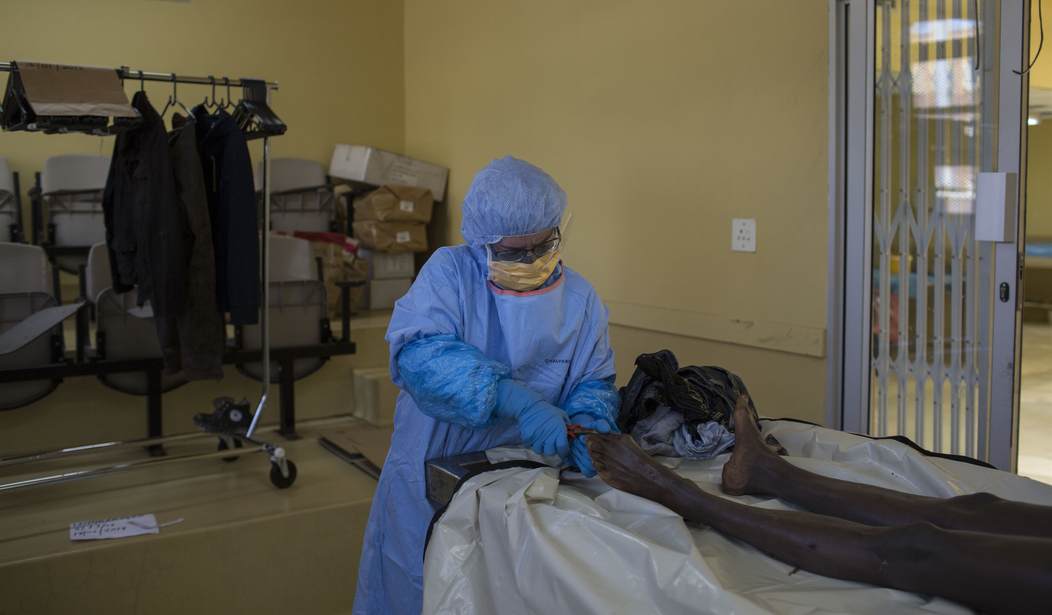Last week, I reported on a woman living in a hospice in Iowa who had been declared dead only to give the funeral home attendant the scare of his life when he opened the body bag and found her gasping for air.
It turns out that incidents like this aren’t common, but they aren’t rare either. A similar incident took place in New York on Saturday when a woman was pronounced dead in a nursing home and taken to the O.B. Davis Funeral Homes on Long Island, where she woke up three hours later.
A Long Island, New York, woman who was pronounced dead at the nursing home she lived, started breathing again after she was taken to a local funeral home, according to reports.
Fox station WNYW reported that the 82-year-old woman was pronounced dead at the Waters Edge Rehab and Nursing Center in Port Jefferson, New York at 11:15 a.m. on Saturday.
At 1:30 p.m., she was taken to the O.B. Davis Funeral Home in Miller Place, New York, and at 2:09 p.m., she started breathing again.
No update on her condition has been given. The Iowa woman died on Jan. 3 after being declared dead on Dec. 28.
Elsewhere in the world, the incidence of premature declarations of death has led to some pretty bizarre situations.
Earlier this year a woman in South Africa was wrongly pronounced dead after a car crash, with the paramedics later blaming the mix up on their equipment.
In one odd case, a Kenyan man appears to have accidentally Romeo and Julieted himself, when the insecticide he drank caused him to appear dead only to later miraculously wake up in the morgue.
One of the most harrowing examples of this comes from Greece, where in 2014 a woman was found to have been buried alive and asphyxiated in her coffin. The mistake was only discovered when children playing near the cemetery heard her screaming from within the earth.
How can this happen? The easy answer is the incompetence and general stupidity of staff. Overworked, underpaid, ill-trained, and badly managed nursing home staff — even nurses — are often at the bottom of the barrel when it comes to being medical professionals.
Related: An Astonishing Percentage of Americans Blame COVID-19 Vaccines for Unexplained Deaths
But there’s more to it than that. The passage from life to death is sometimes mysterious. No heartbeat and a lack of breathing is usually a sign of death, but not always. No brain activity is also used to define death but is not always reliable.
According to the Uniform Determination of Death Act, “an individual who has sustained either (1) irreversible cessation of circulatory and respiratory functions, or (2) irreversible cessation of all functions of the entire brain, including the brain stem, is dead. A determination of death must be made in accordance with accepted medical standards.” This definition grew out of a national panel on ethics in biology and medicine and has been unchanged since 1981.
But there is no uniform national standard on what constitutes death. And that leads to problems.
Most states adopted some form of the UDDA, but the differences among state laws are startling. North Carolina, for instance, doesn’t have a heart-and-lung provision. Louisiana and Texas completely eschew the total-brain-death clause from their hospital definitions of death. And the phrase “in accordance with accepted medical standards” is absent from Georgia law and appears in equally vague forms in Minnesota (“generally accepted medical standards”), Maryland (“ordinary standards of medical practice”) and Florida (“in accordance with currently accepted medical standards”). I defy you to find 10 doctors who can agree on what constitutes “generally accepted” or “ordinary” standards of medical practice, much less decree whether “cessation of all functions of the entire brain, including the brain stem” is absolutely necessary to define death.
With all our gadgets and gizmos and with all our knowledge, we are still unable to crack the code of life that allows us to declare with certainty that someone is no longer alive. I find that at once profoundly unsettling and gloriously baffling.









Join the conversation as a VIP Member